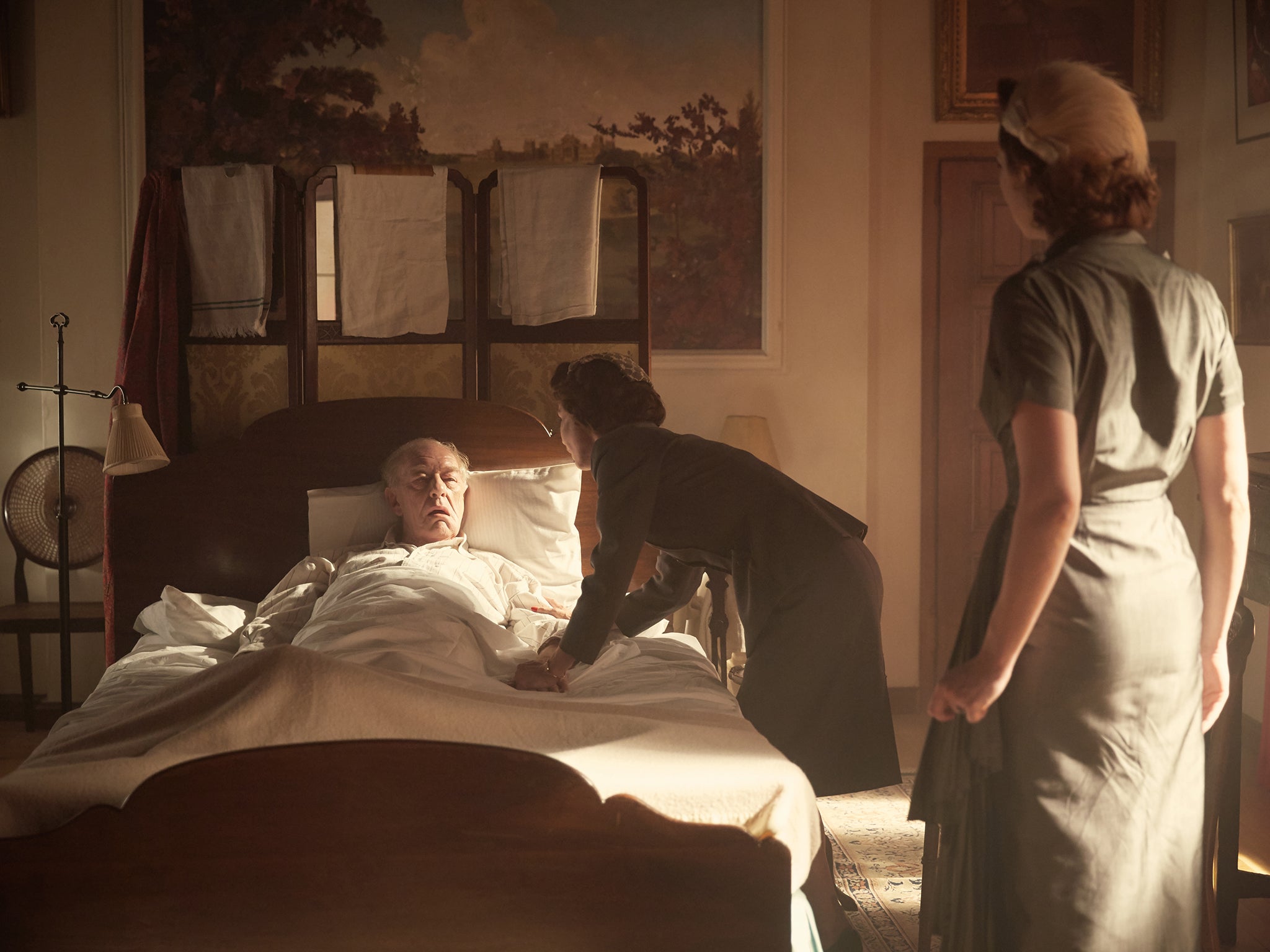Churchill's Secret, ITV, review: Reveals the poisonous legacy of being the child of a great man
Charles Sturridge’s handsomely made period drama focussed on the stroke Churchill suffered in his final years as PM

Your support helps us to tell the story
From reproductive rights to climate change to Big Tech, The Independent is on the ground when the story is developing. Whether it's investigating the financials of Elon Musk's pro-Trump PAC or producing our latest documentary, 'The A Word', which shines a light on the American women fighting for reproductive rights, we know how important it is to parse out the facts from the messaging.
At such a critical moment in US history, we need reporters on the ground. Your donation allows us to keep sending journalists to speak to both sides of the story.
The Independent is trusted by Americans across the entire political spectrum. And unlike many other quality news outlets, we choose not to lock Americans out of our reporting and analysis with paywalls. We believe quality journalism should be available to everyone, paid for by those who can afford it.
Your support makes all the difference.Since the success of Downton Abbey, ITV has been positioning itself as the keeper of the flame of heritage Britain. A new series dramatising the early life of Queen Victoria is due soon and Sunday evening was given over to Charles Sturridge’s handsomely made period drama set during Winston Churchill’s final years as Prime Minister.
Churchill’s secret turned out to be a stroke the 78-year-old PM suffered in 1953. Stewart Harcourt’s script centred on the lengths his aides, family and doctor went to, to keep the news from press and public, ensuring that no general election would be called and that the way was smoothed for Anthony Eden, himself incapacitated following abdominal surgery, to claim the succession.
If that subterfuge sticks in the craw in this modern era (and there was a sense of “for God’s sake don’t let the general public have their say and vote the opposition in” about the whole affair) it’s also worth remembering that war was a still raw memory in the minds of most of those conspiring to keep the secret and that for them Churchill was less a man than a monument. On this slowly crumbling edifice was a whole power structure built – small wonder they were prepared to dissemble, evade and outright lie to protect it.
As Churchill, Michael Gambon bore little resemblance to the former Prime Minister but adeptly caught the mannerisms and voice: by turns autocratic and afraid, he was undeniably the sun round which the lesser planets orbit. A strong supporting cast included Lindsay Duncan as his wife, Clementine, a woman for who the word indomitable could have been invented, Bill Paterson as his avuncular doctor and Romola Garai as a (fictional) Northern nurse who just about managed to make some clunky writing about injustice, miners’ rights and the importance of the newly created NHS slip down.
The drama was at its best, however, when showing the poisonous legacy of being the child of a great man. Matthew Macfadyen was outstanding as the boorish Randolph. The meal between him, his mother and his drunk and depressed sisters as their sick father lay upstairs was a minor masterpiece of suppressed feelings and long-burning resentment. “There’s a price to pay for greatness but the great seldom pay it themselves,” Paterson’s doctor remarked sagely. Watching Churchill’s disillusioned, disunited family those words rang horribly true.
Join our commenting forum
Join thought-provoking conversations, follow other Independent readers and see their replies
Comments